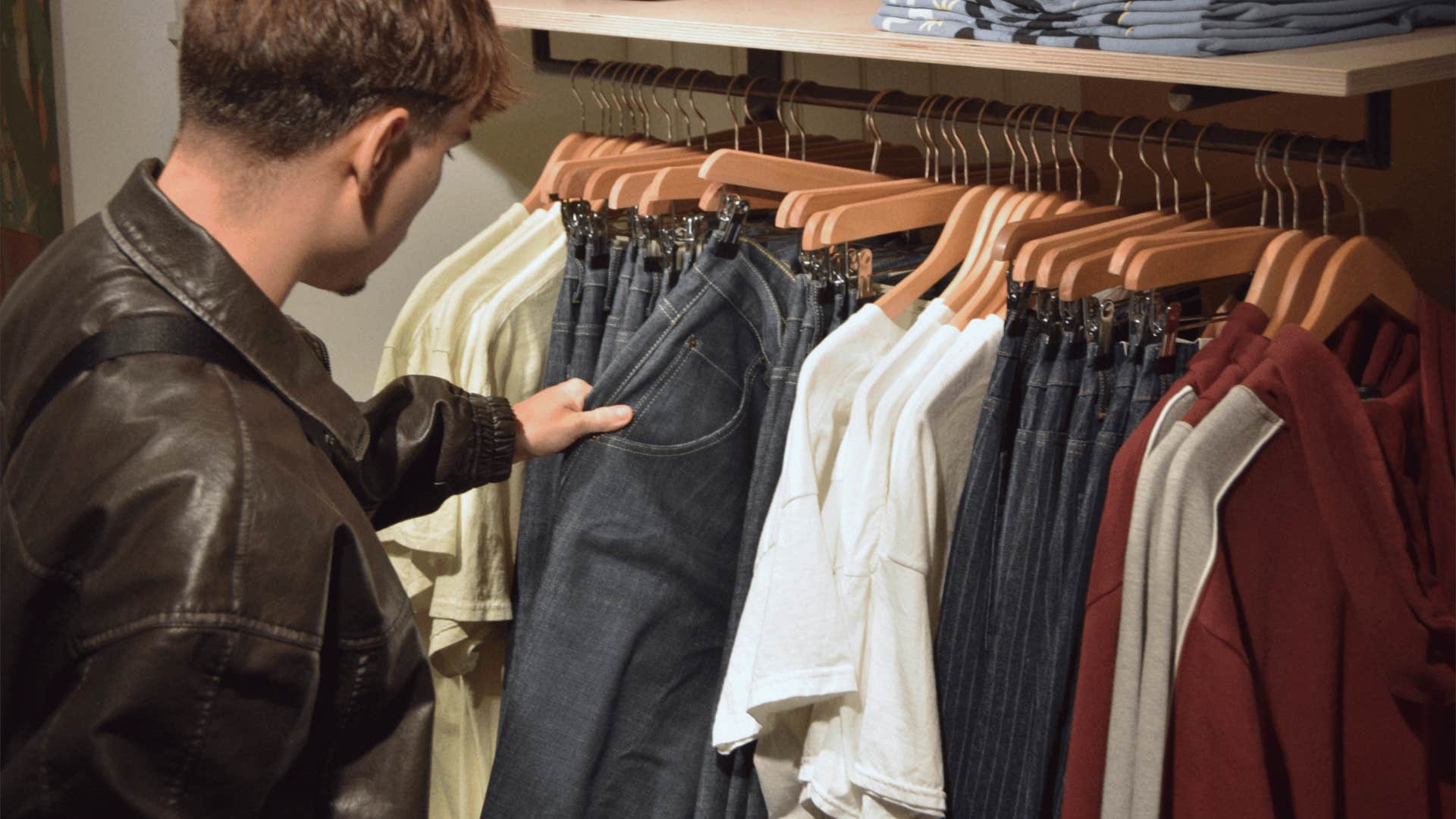11 Things That Are Affordable Now, But Will Be Too Expensive For The Middle Class Within A Year
If things keep going the way they're going, the middle class may need to tighten their belts sooner than they may expect.
 Nicoleta Ionescu / Shutterstock
Nicoleta Ionescu / Shutterstock America has a complicated history when it comes to the middle class. Being included in the middle class is an essential part of the American Dream, an ideal based on making good money, owning a home, and being able to provide for your family without difficulty. Yet the middle class in this country is diminishing, and there are many things that are affordable now, but will be too expensive for the middle class within a year.
Many people are already struggling to afford things like housing, food, and other basic necessities, and if things keep going the way they are going, there's a good chance that they’ll only become more expensive in the years to come.
These are 11 things that are affordable now, but will be too expensive for the middle class within a year
1. Fast food
 blackcat from Getty Images via Canva
blackcat from Getty Images via Canva
Fast food might be affordable now, but it will become too expensive for the middle class within a year. Places like McDonald’s and Taco Bell are staples for a quick meal that won’t break the bank, but as The Food Institute revealed, fast-food chains have been hiking their prices for the past ten years.
Most restaurants raised prices by an average of 60% between 2014 and 2024. At some places, the cost of a meal was more than double the inflation rate. McDonald’s prices sky-rocketed at an especially outrageous rate, as they increased prices by an average of 100%.
Fast food has been a consistently accessible choice for many people in the U.S., but if prices keep rising at such a rapid pace, it will be too expensive for the middle class sooner rather than later.
2. Grocery staples
 Gustavo Fring from Pexels via Canva
Gustavo Fring from Pexels via Canva
Basic necessities like eggs, milk, meat and produce will become too expensive for the middle class within a year. Rising food costs already make it hard for many people to afford groceries, and the possibility of tariffs will make certain grocery staples even less affordable than they are now.
The possibility of tariffs on Mexico and Canada has been put on hold for the next 30 days, but if the government does go through with the decision to impose taxes on imported items from those countries, average Americans will take a huge hit.
The U.S. imports major amounts of fruits, vegetables and tree nuts from Mexico. In 2021, Mexico provided almost half of the fruit that was imported into this country. They’re the leading exporter of strawberries, tomatoes, and bell peppers, not to mention the fact that 90% of the avocados Americans eat come from Mexico. Tariffs could pass the cost burden onto everyday people buying groceries, making it even harder to provide a balanced meal for their families.
3. Fast fashion
 alba from alba via Canva
alba from alba via Canva
Fast fashion companies are known for being trendy and inexpensive, but the price of those clothes will be too expensive for the middle class within a year. Certain fast fashion companies have already raised their prices.
In June of 2024, Shein’s prices increased by over one-third on specific essential items. Some analysts believed that the price hike was an attempt to boost revenue before the company’s planned IPO. With tariffs, those prices could go up even more, as most of Shein’s clothes are manufactured in China. The United States is one of Shein’s largest markets, but there’s no telling if that will continue as their prices keep going up.
4. Vacations
 Sunny Studio via Canva
Sunny Studio via Canva
Going on vacation is affordable for the middle class now, but will be too expensive within a year. As the U.S. enters a period of economic uncertainty, average Americans feel a great amount of financial anxiety, which impacts what they decide to spend money on. Airline tickets tend to fluctuate in price, but they’ve been more costly than usual, and soon, they’ll become prohibitively expensive.
According to the Pew Research Center, a middle-income household is a three-person household with an income that ranges from two-thirds to double the median income in the U.S. In 2022, middle class households had an income ranging from around $56,600 to $169,800. In between the cost of airlines and hotels along with taking time off work, soon, the middle class won’t be able to afford vacations in the same way they once did.
5. TVs
 Andres Ayrton from Pexels via Canva
Andres Ayrton from Pexels via Canva
A major part of American culture is based on watching TV, but that time-honored activity will be too expensive for the middle class within a year. Americans are already feeling a strain on their wallets as streaming services have raised their prices, and actual TVs could soon become prohibitively expensive, as well.
Mexico leads production in flat-screen TVs. If tariffs are put into place, the cost of the most basic tenant of home entertainment won’t be affordable anymore. People might be willing to pay almost $25 a month for a premium Netflix subscription, but they might have a TV to binge-watch with, sooner rather than later.
6. Cars
 studioroman via Canva
studioroman via Canva
Buying a car has been a difficult economic endeavor for the past several years, with the impact of rising inflation and supply-chain issues, and it could become even more expensive within a year. According to CNN, the average price of a new car is almost $48,000, and buying a used car isn’t any easier. The average transaction price to get a used car is almost $9,000 more than it was seven years ago.
While buying a car isn’t particularly accessible as is, it could get harder if tariffs go through, given that U.S. car manufacturing is an integrated process between our country, Canada, and Mexico. Tariffs would add an extra $2,700 to the average price of an American car.
7. Gas prices
 SolStock from Getty Images via Canva
SolStock from Getty Images via Canva
Tariffs won’t only affect buying a car, they’ll also affect the cost of keeping the gas tank full. A major amount of the crude oil sent to U.S. refineries comes from Canada. Gas prices have stayed steady so far, but a spike isn’t out of the question.
“Increasing expenses by 25% is going to lead to higher costs at the pump for U.S. consumers and higher input costs for businesses around the country,” economist Matthew Martin said.
While Trump proposed a 10% tariff on Canadian energy products, that number would still have a big impact. Scott Lincicome, the VP of general economics and trade at the Cato Institute, believes that a 10% tariff on Canadian crude oil will lead gas prices to go up by 10 or 20 cents a gallon.
8. Electronics
 Yuganov Konstantin via Canva
Yuganov Konstantin via Canva
Our reliance on technology is a major unifier. No matter what someone’s class status is, being chronically online is part of getting through a day. The 10% tariff Trump imposed on China could impact over $450 billion of imported materials, including essential electronics. Erica York, vice president of federal tax policy at The Tax Foundation shared that the impact of tariffs on China will directly affect tech products, since Apple isn’t exempt from the tax now that Trump’s taken office for a second term.
“So, iPhones, iPads, tablets, laptops — all of that from Apple would now be hit,” she explained.
According to The Tax Foundation, tariffs on Chinese goods will add $172 to the taxes each U.S. household pays. If Trump’s other tariffs go in effect, it would cause an average tax increase of over $800 in the next year. For most people who belong to the middle class or below, economic concerns outweigh political affiliations. Things will get too expensive for the middle class within a year, which could lead to major upheaval and unrest.
9. Childcare
 fizkes by Getty Images via canva
fizkes by Getty Images via canva
Childcare is barely affordable now, but it will be prohibitively expensive for the middle class within a year. According to the Center for American Progress, childcare costs have more than tripled since the 90s, and family wages haven’t kept up the same pace.
Parents pay a median amount of $800 a month for childcare, and the price goes up to $1,100 for families who need childcare for 20 hours or more. To say that child care costs have reached crisis levels isn’t an exaggeration. It’s estimated that 134,000 families are pushed into poverty by those expenses each year.
10. Housing
 kate_sept2004 from Getty Images Signature via canva
kate_sept2004 from Getty Images Signature via canva
The cost of housing isn’t affordable now, but it will become even more expensive for the middle class within a year if tariffs are enacted. Tariffs will exacerbate the housing shortage in the U.S., making it even harder to import crucial material for building new construction.
According to The National Association of Home Builders, 70% of softwood lumber and gypsum, which is used in drywall, come from Canada and Mexico.
“Tariffs on lumber and other building materials increase the cost of construction and discourage new development, and consumers end up paying for the tariffs in the form of higher home prices,” they shared in a statement.
It’s already hard enough for average Americans to pay rent, let alone own a home, and it seems like it’s only going to get worse.
11. Medical care
 FatCamera via Canva
FatCamera via Canva
Healthcare is a human right, but the rising cost of medical care will make it too expensive for the middle class– and everyone else who’s not part of the one percent– within a year. According to the U.S. Government Accountability Office, spending on private health coverage could go over $1.5 trillion within the next year.
The GAO shared that a key factor of these rising costs comes from the growing market concentration of among fewer insurance companies. Pair those prices with sky-rocketing cost of medication and life-saving medical procedures, and it would appear that a major healthcare crisis could be coming down the road.
Alexandra Blogier, MFA, is a staff writer who covers psychology, social issues, relationships, self-help topics, and human interest stories.

